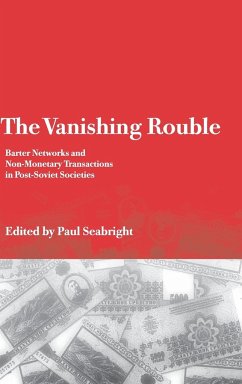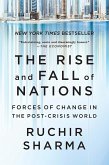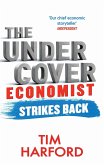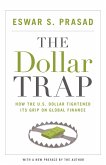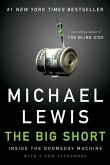- Gebundenes Buch
- Merkliste
- Auf die Merkliste
- Bewerten Bewerten
- Teilen
- Produkt teilen
- Produkterinnerung
- Produkterinnerung
An accessible and authoritative analysis of barter in the former Soviet Union.
Andere Kunden interessierten sich auch für
![The Israeli Economy from the Foundation of the State Through the 21st Century The Israeli Economy from the Foundation of the State Through the 21st Century]() Paul RivlinThe Israeli Economy from the Foundation of the State Through the 21st Century36,99 €
Paul RivlinThe Israeli Economy from the Foundation of the State Through the 21st Century36,99 €![Selling China Selling China]() Yasheng HuangSelling China23,99 €
Yasheng HuangSelling China23,99 €![The Rise and Fall of Nations The Rise and Fall of Nations]() Ruchir SharmaThe Rise and Fall of Nations9,99 €
Ruchir SharmaThe Rise and Fall of Nations9,99 €![The Undercover Economist Strikes Back The Undercover Economist Strikes Back]() Tim HarfordThe Undercover Economist Strikes Back18,99 €
Tim HarfordThe Undercover Economist Strikes Back18,99 €![The Dollar Trap The Dollar Trap]() Eswar S. PrasadThe Dollar Trap28,99 €
Eswar S. PrasadThe Dollar Trap28,99 €![The Big Short The Big Short]() Michael LewisThe Big Short9,49 €
Michael LewisThe Big Short9,49 €![Internationalisation and Economic Institutions Internationalisation and Economic Institutions]() Mark ThatcherInternationalisation and Economic Institutions58,99 €
Mark ThatcherInternationalisation and Economic Institutions58,99 €-
-
-
An accessible and authoritative analysis of barter in the former Soviet Union.
Hinweis: Dieser Artikel kann nur an eine deutsche Lieferadresse ausgeliefert werden.
Hinweis: Dieser Artikel kann nur an eine deutsche Lieferadresse ausgeliefert werden.
Produktdetails
- Produktdetails
- Verlag: Cambridge University Press
- Seitenzahl: 402
- Erscheinungstermin: 16. Februar 2016
- Englisch
- Abmessung: 235mm x 157mm x 28mm
- Gewicht: 801g
- ISBN-13: 9780521790376
- ISBN-10: 0521790379
- Artikelnr.: 35452048
- Herstellerkennzeichnung
- Libri GmbH
- Europaallee 1
- 36244 Bad Hersfeld
- gpsr@libri.de
- Verlag: Cambridge University Press
- Seitenzahl: 402
- Erscheinungstermin: 16. Februar 2016
- Englisch
- Abmessung: 235mm x 157mm x 28mm
- Gewicht: 801g
- ISBN-13: 9780521790376
- ISBN-10: 0521790379
- Artikelnr.: 35452048
- Herstellerkennzeichnung
- Libri GmbH
- Europaallee 1
- 36244 Bad Hersfeld
- gpsr@libri.de
Introduction: barter networks and information islands Paul Seabright; Part
I. Theory: 1. Some lasting thing: barter and the value of money Jayasri
Dutta; 2. Barter Relationships Canice Prendergast and Lars Stole; 3. An
anthropological view of barter in Russia Caroline Humphrey; Part II. Large
Scale Empirical Studies: 4. Barter in post-Soviet societies: what does it
look like and why does it matter? Alena Ledeneva and Paul Seabright; 5.
Different types of non-monetary transaction in Russia Simon Commander and
Christian Mummsen; 6. Barter in Russia Sergei Guriev and Barry W. Ickes; 7.
The household in a non-monetary market economy Simon Clarke; 8. Barter in
transition economies: competing explanations confront Ukrainian data Dalia
Marin, Daniel Kaufmann and Bogdan Gorochowskij; 9. Barter and non-monetary
transactions in transition economies: evidence from a cross-country survey
Wendy Carlin, Steven Fries, Mark Schaffer and Paul Seabright; Part III.
Ethnography: 10. How is barter done? The social relations of barter in
provincial Russia Caroline Humphrey; 11. Shadow barter: economic necessity
or economic crime? Alena Ledeneva; 12. Surrogate currencies and the wild
market in Central Siberia David G. Anderson; 13. Bear skins and macaroni:
the social life of things at the margins of a Siberian state collective
Nikolai Ssorin-Chaikov; Conclusion: what is to be done? Paul Seabright and
Simon Commander.
I. Theory: 1. Some lasting thing: barter and the value of money Jayasri
Dutta; 2. Barter Relationships Canice Prendergast and Lars Stole; 3. An
anthropological view of barter in Russia Caroline Humphrey; Part II. Large
Scale Empirical Studies: 4. Barter in post-Soviet societies: what does it
look like and why does it matter? Alena Ledeneva and Paul Seabright; 5.
Different types of non-monetary transaction in Russia Simon Commander and
Christian Mummsen; 6. Barter in Russia Sergei Guriev and Barry W. Ickes; 7.
The household in a non-monetary market economy Simon Clarke; 8. Barter in
transition economies: competing explanations confront Ukrainian data Dalia
Marin, Daniel Kaufmann and Bogdan Gorochowskij; 9. Barter and non-monetary
transactions in transition economies: evidence from a cross-country survey
Wendy Carlin, Steven Fries, Mark Schaffer and Paul Seabright; Part III.
Ethnography: 10. How is barter done? The social relations of barter in
provincial Russia Caroline Humphrey; 11. Shadow barter: economic necessity
or economic crime? Alena Ledeneva; 12. Surrogate currencies and the wild
market in Central Siberia David G. Anderson; 13. Bear skins and macaroni:
the social life of things at the margins of a Siberian state collective
Nikolai Ssorin-Chaikov; Conclusion: what is to be done? Paul Seabright and
Simon Commander.
Introduction: barter networks and information islands Paul Seabright; Part
I. Theory: 1. Some lasting thing: barter and the value of money Jayasri
Dutta; 2. Barter Relationships Canice Prendergast and Lars Stole; 3. An
anthropological view of barter in Russia Caroline Humphrey; Part II. Large
Scale Empirical Studies: 4. Barter in post-Soviet societies: what does it
look like and why does it matter? Alena Ledeneva and Paul Seabright; 5.
Different types of non-monetary transaction in Russia Simon Commander and
Christian Mummsen; 6. Barter in Russia Sergei Guriev and Barry W. Ickes; 7.
The household in a non-monetary market economy Simon Clarke; 8. Barter in
transition economies: competing explanations confront Ukrainian data Dalia
Marin, Daniel Kaufmann and Bogdan Gorochowskij; 9. Barter and non-monetary
transactions in transition economies: evidence from a cross-country survey
Wendy Carlin, Steven Fries, Mark Schaffer and Paul Seabright; Part III.
Ethnography: 10. How is barter done? The social relations of barter in
provincial Russia Caroline Humphrey; 11. Shadow barter: economic necessity
or economic crime? Alena Ledeneva; 12. Surrogate currencies and the wild
market in Central Siberia David G. Anderson; 13. Bear skins and macaroni:
the social life of things at the margins of a Siberian state collective
Nikolai Ssorin-Chaikov; Conclusion: what is to be done? Paul Seabright and
Simon Commander.
I. Theory: 1. Some lasting thing: barter and the value of money Jayasri
Dutta; 2. Barter Relationships Canice Prendergast and Lars Stole; 3. An
anthropological view of barter in Russia Caroline Humphrey; Part II. Large
Scale Empirical Studies: 4. Barter in post-Soviet societies: what does it
look like and why does it matter? Alena Ledeneva and Paul Seabright; 5.
Different types of non-monetary transaction in Russia Simon Commander and
Christian Mummsen; 6. Barter in Russia Sergei Guriev and Barry W. Ickes; 7.
The household in a non-monetary market economy Simon Clarke; 8. Barter in
transition economies: competing explanations confront Ukrainian data Dalia
Marin, Daniel Kaufmann and Bogdan Gorochowskij; 9. Barter and non-monetary
transactions in transition economies: evidence from a cross-country survey
Wendy Carlin, Steven Fries, Mark Schaffer and Paul Seabright; Part III.
Ethnography: 10. How is barter done? The social relations of barter in
provincial Russia Caroline Humphrey; 11. Shadow barter: economic necessity
or economic crime? Alena Ledeneva; 12. Surrogate currencies and the wild
market in Central Siberia David G. Anderson; 13. Bear skins and macaroni:
the social life of things at the margins of a Siberian state collective
Nikolai Ssorin-Chaikov; Conclusion: what is to be done? Paul Seabright and
Simon Commander.

